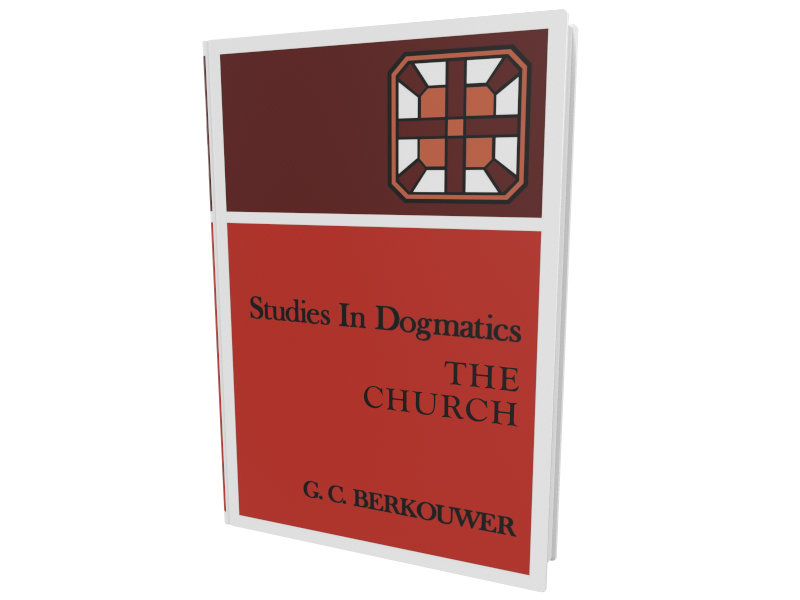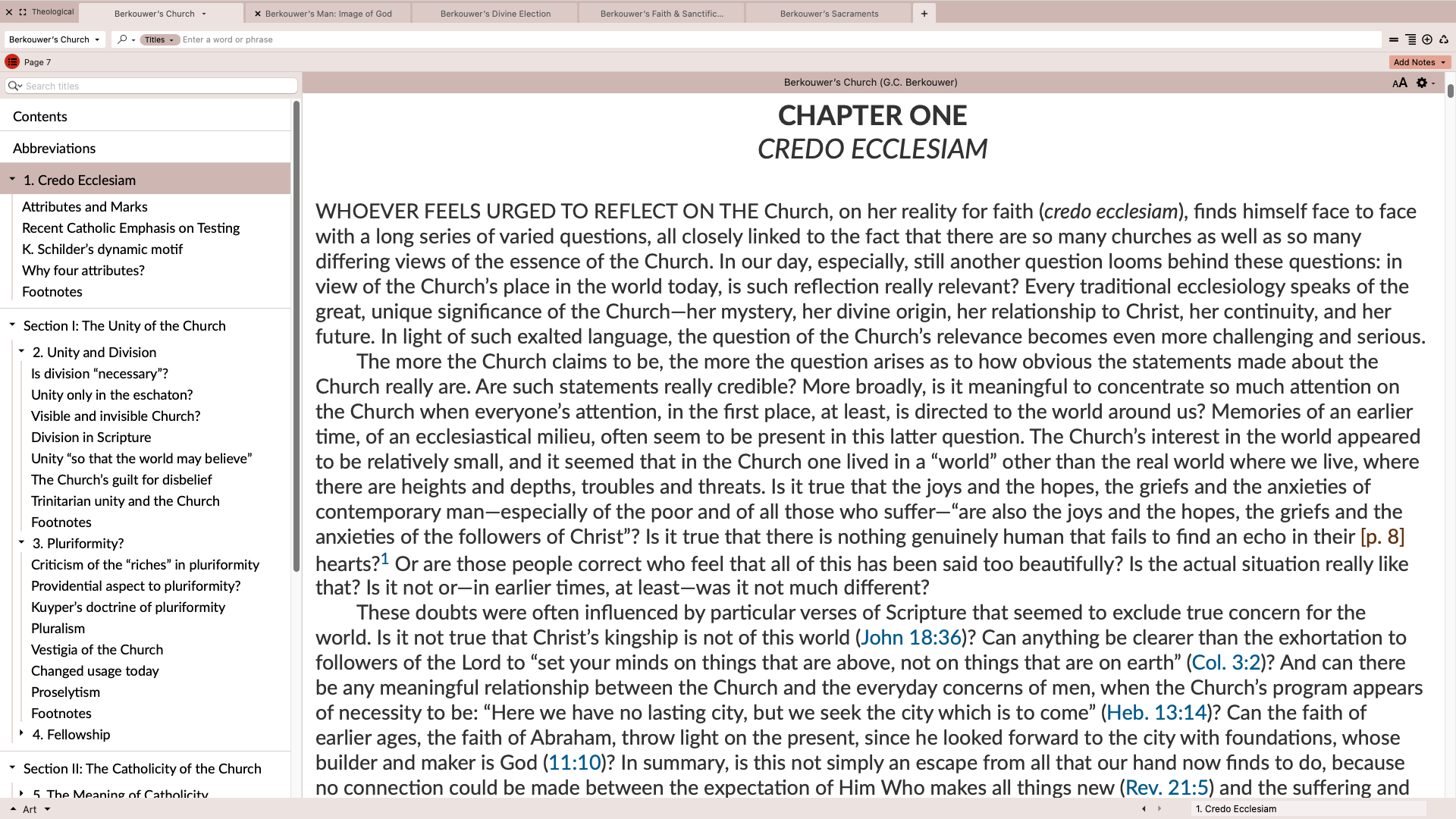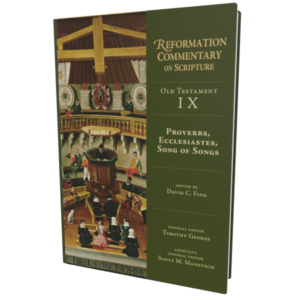Studies in Dogmatics: The Church (Berkouwer) / September 28, 1976
Requires Accordance 11.2 or above.
The Church is the fourteenth and final volume of Berkouwer’s Studies in Dogmatics.
“I believe one holy catholic and apostolic church.” In these words of the Nicene Creed Christians of every era and every land have articulated a dimension of their faith that seems to invite cynicism. Through the years unity and universality, holiness and faithfulness to the apostolic tradition have not been overwhelmingly obvious as attributes of the Church.
G. C. Berkouwer is not content to take the easy out and explain these shortcomings as though what has traditionally been confessed about the Church refers only to an ideal, not the actual Church in its historical manifestations. On the contrary, Berkouwer argues, to the extent that the Church fails to display unity, catholicity, and holiness, it is failing to be itself.
The four sections of this volume correspond to the attributes of the Church confessed in the Nicene Creed. In the first place, the Church is one. The New Testament would have taken for granted this unity of the Church-for which Christ prayed in his high priestly prayer, “that the world might believe.” To be sure, the Church will exhibit many forms in different cultures, but this diversity may never lead to divisiveness. The sign of unity is the fellowship that the Church has as the body of Christ: for the Christian, redemption is never strictly individual.
Cyprian of Carthage alleged that outside of the Church there is no salvation—and this expression of the Church’s catholicity found its way into most Reformation confessions. What can it mean today? Can there be “anonymous Christians” who have no affiliation with the Church, no identification with the gospel, but live by Christian principles? Does the Church ever change? What does it mean for a Reformed Church ever to be reforming?
The continuity of the church is preserved by apostolicity: the body of Christ now stretches back through time to the beginning. Yet how is this apostolic character preserved? What are the implications of this confession? Is the Church infallible? Is the Church competent to speak on social, political, or economic issues?
Like the redeemed believer the Church is righteous and sinful at the same time. That sin remains-not merely in the lives of the individual members but in the very Church-prevents the holiness of the Church from becoming an occasion for triumphalism. Under the fourth attribute Berkouwer discusses church discipline, the question of heresy, and the subject of mission.
Readers of Berkouwer who have come to expect penetrating analysis of a wide range of past and contemporary options, constant reference to the Bible in the outworking of a theological stance, and deep concern for the preachability of theology will not be disappointed by this vivid and thoughtful contribution to ecclesiology.
About the Series
In this series rooted in the normative significance of Scripture, noted Dutch theologian G. C. Berkouwer examines great doctrines of the Reformed faith, developing and defending Reformed theology through interaction with a wide range of theologies and theologians.
Product Details
- Series Name: Studies in Dogmatics
- Authors: G. C. Berkouwer
- Publisher: W. B. Eerdmans Publishing
- Publish Date: September 28, 1976
- ISBN: 978-0-8028-4815-4
- # of Pages: 440
- Level: Academic, Student, Teacher, Technical
- Tradition: Protestant, Reformed Christian
- Language: English
- Categories: Theology
- Publisher Categories: Christian Systematic Theology, Ecclesiology Christian Theology
- Min Acc Version: 11.2
Where to Find
Studies in Dogmatics: The Church (Berkouwer) is included with the following packages
| Category | Code | Title | Price |
|---|---|---|---|
| Add-on Bundles | Berkouwer-Dogmatics Bundle | Berkouwer’s Studies in Dogmatics (14 vols.) | 249.99 |
Reviews
There are no reviews yet.





